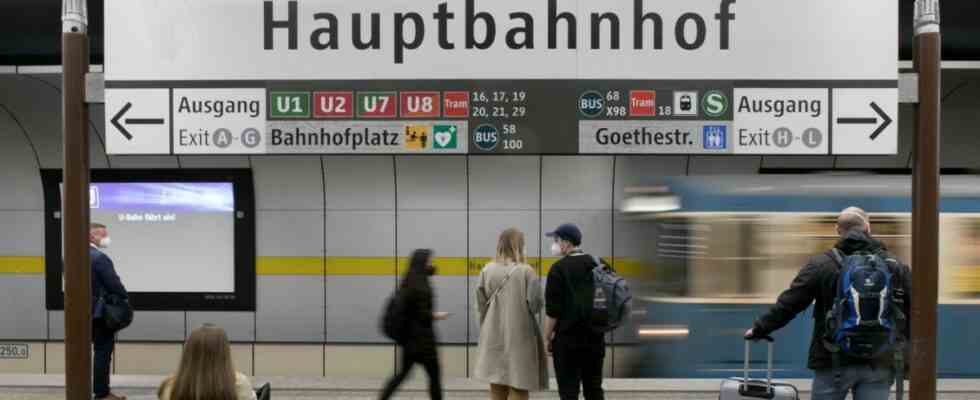The subway, bus and tram form the backbone of the traffic turnaround in the city. The nine-euro ticket therefore sends the right signal, while the Munich transport company’s plans for cuts do not.
The turnaround in traffic should succeed in big steps. The Bundestag is currently discussing the nine-euro ticket with the federal states in order to at least temporarily support people in the face of inflation and rising prices for gas, heating oil and food. Munich has long since set itself the goal of making the old town largely car-free in just a few years, directing local passenger transport to public transport or cycling and creating green boulevards and pedestrian zones. The announcement by the Munich Transport Company (MVG) that it will cut its timetable if there are no financial injections from the federal, state and city governments is irritating, to say the least, if not disturbing.
The municipal company is the backbone for the traffic turnaround in Munich. Hundreds of thousands of commuters could be lured to bus and rail with the expansion of local public transport instead of being stuck in traffic jams on the access roads and arterial roads every day. The motto must therefore be to expand the offer and not to reduce it. But the plans of the MVG do not bode well: the connection of the U4 between Theresienwiese and Odeonsplatz, which leads through the busy main station and significantly relieves the U5, which runs parallel in places, is to be discontinued in the mornings, at night and on Sundays. In the case of the tram lines, MVG wants to halve the offer in some cases, and entire lines of the buses are to be eliminated. A traffic turnaround is commonly understood to mean something else.
Ultimately, the reduced service program would be a failure to support the city council’s efforts to move passenger transport away from cars and onto rails, bus lanes, cycle paths and comfortable pedestrian connections in an environmentally friendly manner. After all, the passengers also provide their services by buying day tickets, weekly tickets or even annual subscriptions for not exactly little money. If money is still tight at MVG, the public sector has to step in – despite all the burdens that they are trying to at least compensate for Corona, refugee accommodation and increased living costs. It must now be made clear to those responsible at MVG that we live in times of crisis. This is certainly not a good time to threaten cuts and haggle over many millions.

